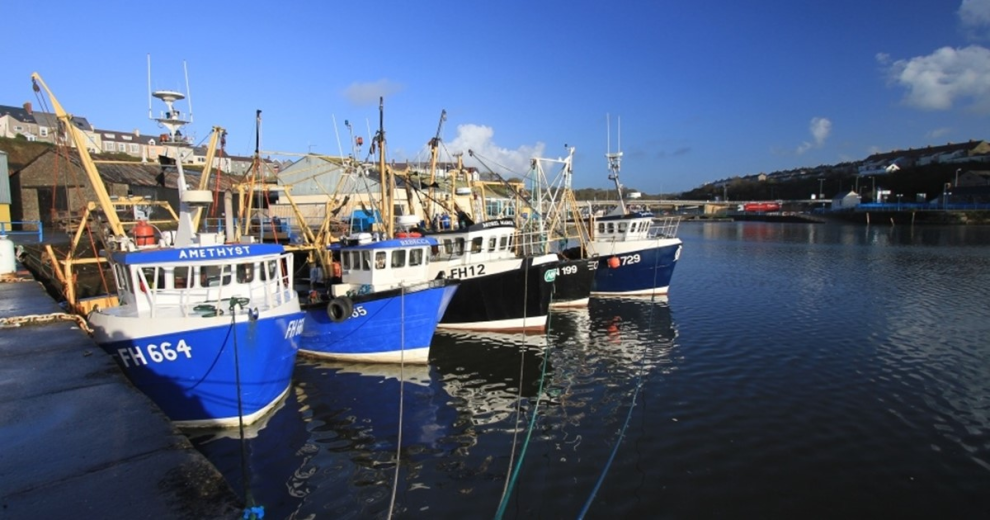The UK Government has unveiled a comprehensive package of measures aimed at securing a prosperous fishing industry and a sustainable marine environment for future generations. These reforms reflect the newfound freedoms that the UK has gained outside the European Union and signify a clear departure from the Common Fisheries Policy.
At the core of these initiatives is the implementation of a world-class fisheries management system, which draws upon the best available scientific knowledge and the expertise of fishermen. This system will be supported by Fisheries Management Plans, which outline the most effective strategies for maintaining fish stocks. The first batch of six plans has been published, covering key species such as bass, king scallops, crab, and lobster. These plans, developed in collaboration with industry representatives and anglers over an 18-month period, fulfil the commitments outlined in the Fisheries Act of 2020. Their implementation will not only foster a modern and resilient fishing sector but also ensure the sustainability of fish stocks. The plans incorporate a combination of immediate actions, such as seasonal closures and additional scientific studies, as well as long-term approaches based on the latest scientific evidence.
In addition, the government has introduced measures specifically aimed at supporting smaller vessels, which are vital to coastal communities. The removal of a cap on quota usage for vessels under 10 metres in length will allow them to take full advantage of post-Brexit quota increases, providing them with greater income-generating opportunities.
Another significant development is the launch of a consultation on the government’s vision for remote electronic monitoring (REM) in English waters. REM systems, comprising cameras, gear sensors, and GPS units, will enhance the collection of robust evidence and data to support the implementation of management plans. This cutting-edge technology will enable the monitoring of various aspects, including the type and quantity of fish caught, accidental bycatch of marine mammals, and seabirds. The availability of such comprehensive information will help the fishing industry manage stocks sustainably and instil confidence in the sustainability of the UK’s seafood among buyers and retailers.
Thérèse Coffey, the Secretary of State for Environment, Food and Rural Affairs, emphasised the importance of these reforms, stating, “Today’s reforms mark a clear departure from the outdated Common Fisheries Policy now that we are an independent coastal state.” She highlighted the government’s commitment to building a modern, profitable fishing industry supported by sustainable fish stocks and a healthy marine environment.
The National Federation of Fishermen’s Organisations expressed their support for the Fisheries Management Plans, acknowledging that the plans offer an ambitious departure from the failed top-down approach of the Common Fisheries Policy. Mike Cohen, the Chief Executive of the organisation, emphasised the collaborative effort between fishers, scientists, and regulators in shaping these plans, recognising the critical link between healthy seas, sensible regulations, and fishermen’s livelihoods.
Alongside these reforms, the government has announced various other initiatives. These include a new approach to managing discards in England to ensure the long-term viability of the fishing fleet and coastal communities, while safeguarding the marine environment and fish stocks. Furthermore, the government is considering establishing a licensed recreational bluefin catch and release tuna fishery to provide economic opportunities for coastal towns and rural communities. The UK Seafood Fund will receive an additional £45.6 million, which will be used to modernise infrastructure within the seafood sector, support research for fisheries management, and create approximately 1,500 jobs. The government has also responded to a consultation on flyseining, providing immediate protection for squid stocks and other non-quota species. Additionally, a summary of responses to a consultation on the spatial management of sandeels has been published, with the majority of respondents supporting the full closure of industrial sandeel fishing in English waters of the North Sea.
These reforms align with the goals outlined in the UK’s Environmental Improvement Plan and the government’s Food Strategy. They aim to enhance food security, uplift coastal towns, and benefit local communities.
In Pembrokeshire, the Port of Milford Haven has been awarded £2.6 million to undertake significant regeneration works at Milford Fish Docks. These works will include the construction of a new pontoon to accommodate 25 to 30 inshore fishing vessels. This development will bolster the port’s capability to sustainably land, process, and add value to produce, benefiting local, regional, and international markets.
Additionally, Câr-Y-Môr – Love of the Sea Ltd, based in St Davids, has secured £1.1 million to expand its seaweed production facilities. This expansion project involves the establishment of a seaweed processing unit equipped with storage facilities, equipment, a shop, and an educational hub.
Stephen Crabb MP for Preseli Pembrokeshire said: “Today, two big funding announcements have been made by UK Government which will help boost Pembrokeshire’s fishing industry.”
“I am delighted that local projects have been successful in securing funding from the £100 million UK Seafood Fund (UKSF) which is already supporting innovation, skills and job creation around our coastline.”
The UK Seafood Fund, which amounts to £100 million, has been instrumental in supporting coastal projects such as these, fostering innovation, skills, and job creation in the coastal regions.
These announcements build upon the UK government’s progress in developing a thriving fishing sector outside the EU. Since Brexit, the UK has negotiated a significant increase in quota shares, valued at approximately £101 million, for the UK fleet this year alone. The UK Seafood Fund, with its £100 million investment, aims to secure the long-term future of the UK fisheries sector by driving innovation, supporting job creation, and facilitating seafood exports to new markets.


















